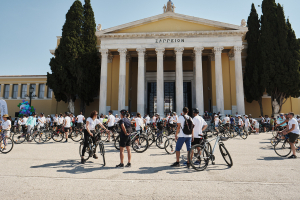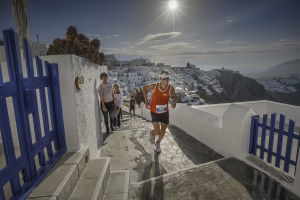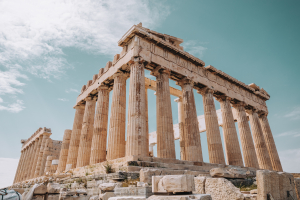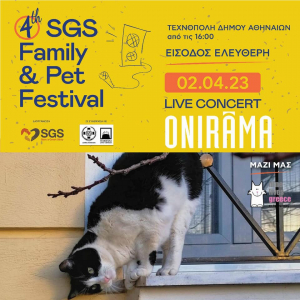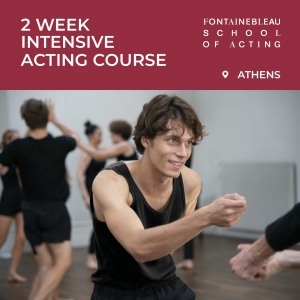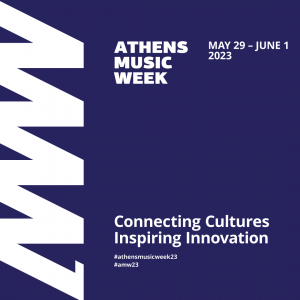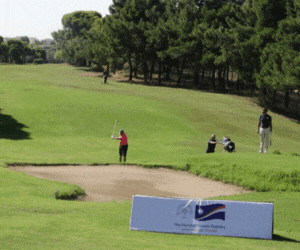LIFE & CULTURE
XpatAthens
Saturday, 13 May 2023 13:38
Registrations Are Now Open For Run Bike Care
We Run – Bike for a good cause on June 11, 2023
The time has come for all of us to unite and participate for a good cause. This year’s Run - Bike - Care event, organized by the Association of Cancer patients “KEFI of Athens” on Sunday, June 11, 2023, at Zappeion in the center of Athens, as well as in other cities of Greece, invites people of all ages and abilities to run, walk or take their bike in support of the “Mazi kai sto Spiti” program.Run Bike Care 2023 includes a 5km run or walk and a 10km bike ride with a start and finish point at the iconic Zappeion Megaron, which is a part of national heritage of Greek civilization.
In addition to Athens, the action will take place nationwide in Thessaloniki, Larissa, Lamia, Syros, Chania, Gythio and other locations in Greece.
Register here as a team or individual
Support from everyone
The Run Bike Care action is supported by significant personalities from the fields of sports and arts. More specifically, the following people have already responded positively at the call for support of the Association of Cancer patients “KEFI of Athens”, which offers psychological and social support to oncology patients and their family members over the last 20 years:
- Nasos Ghavelas - Paralympic gold medalist in 100m, holder of the world record in the T11 category
- Makis Kalaras - Paralympic silver medalist, world and European discus champion
- Periklis Iakovakis - Olympian and European champion in 400m. with hurdles
- Constantine Dean Karnazes – Greek-American Ambassador of Greek Tourism, ultra-marathoner who has run 50 marathons in 50 consecutive days in 50 different US states
- Maria Polyzou – Survivor, Marathon Runner, Holder of Greek National Marathon Performance
- Michalis Triantafyllidis – former international volleyball player, record holder for appearances with the Greek National Team
- Jo Manta – Ultramarathoner
- Christina Flampouri - has conquered the 7 highest peaks in the world
- Maria Mpekatorou – Journalist - Presenter
- Youlika Skafida – Actress
- Dora Tsambazi - Journalist
- Dimitris Moros – Professor of Physical Education / FitnessArt
- Mandy Persaki – Professor of Physical Education / Pilates by Mandy
- Mamatsita – Gogo Papadionisiou - Food Blogger
All Run Bike Care proceeds fund the “Mazi kai sto Spiti” Program
The proceeds from this year’s Run - Bike – Care event will finance the “Mazi kai sto Spiti” program, which is the realization of the vision of “KEFI of Athens” to improve the life quality of oncology patients and their families who are unable to move from their homes. The program started its operation in September 2018 and it has not stopped supporting people in their home by providing psychological and social support ever since. Services are provided free of charge to oncology patients who meet the following conditions: a) serious health condition, b) inability to move, c) financial & family conditions.
For more information: https://bit.ly/3nmt8WV
Run - Bike - Care is an action of celebration for all those who survived cancer and in memory of those who have passed away. On the occasion of the World Cancer Survivors Day, the Association of Cancer patients “KEFI of Athens” has set June 11, 2023 as a day that raises awareness, uniting the voices of all people who have lived an experience of cancer. With the message “Together we fight - Together we bike - Together we run” people of all ages and abilities will take part without competition, either as runners, walkers or on their bikes, in a pleasant ride in the center of Athens and in other cities of Greece, putting into practice the message of KEFI “We Run Faster Than Cancer”.
With the event’s official hashtag #runbikecare, this year we join our forces on social media to raise awareness for the whole world.
More information about this year’s route and the event’s schedule will be announced in the coming weeks.
Run - Bike - Care / Association KEFI of Athens
Published in
Local News
Tagged under
Monday, 01 May 2023 10:17
Constantine “Dean” Karnazes Is The New Ambassador Of Greek Tourism
Greek-American ultramarathoning legend Constantine “Dean” Karnazes has been appointed by the Greek Ministry of Tourism as the Ambassador of Greek Tourism for the promotion of sports tourism, physical wellness and the Greek Mediterranean diet.
The title is awarded for a period of two years. Constantine Dean Karnazes is a frequent traveler throughout Greece. His father is from the Peloponnese and his mother is from the longevity island of Ikaria. He proudly accepted the appointment as Ambassador of Greek Tourism by the Greek Minister of Tourism, Μr. Vassilis Kikilias, stating: “It is a tremendous honor to serve in this role and I see a bright and vibrant future for Greece, which is birthplace of the Olympics and the marathon.”
About Constantine “Dean” Karnazes
Named by TIME magazine as one of the “100 Most Influential People in the World,” Greek-American ultramarathoning legend Constantine “Dean” Karnazes once ran 50 marathons, in all 50 US states, in 50 consecutive days. This NY Times bestselling author has raced and competed around the world, including running 135-miles nonstop across Death Valley and running a marathon to the South Pole. He has twice carried the Olympic Torch and is a recipient of the President’s Council on Sports, Fitness and Nutrition Lifetime Achievement Award.
Photo credit: Loukas Hapsis
Photo credit: Loukas Hapsis
Published in
Local News
Tagged under
Monday, 24 April 2023 20:16
Turn Athens Into Your Playground
We’ve all heard about the health benefits of walking. It’s free, keeps you more active, and may help you shed a pound or two! Most importantly though, it’s a great way to get around when you’re visiting a new city. So if you enjoy walking, why not try an outdoor escape game? It’s essentially a self-guided walking tour through the city (in our case through the historic center of Athens). These games have many names: role-playing scavenger hunts, location-based games, city exploration games, but whatever you want to call them they are the best thing since feet were invented!
Whether you’re an Athens local or a visitor, our walks give you a new way to see the city that will inspire your curiosity wherever you go next. What will you do? Solve riddles, learn interesting local history, see famous archeological sites, and discover hidden city gems. You can take a break whenever you need to. Stop at one of the many cafes you’ll pass along your walking route to recharge your batteries!
Our newest game is in testing mode so we’re looking for game testers to play for free for a limited time! Just download the Questo app and select the ‘Athens Highlights: Chase the City's Treasures’ game on your smartphone or tablet. It begins once you reach the starting point at Monastiraki Square. No WiFi is required while playing.
Our other games take you through verdant gardens, by the Acropolis, through hidden arcades, and flower markets and you'll even see cool street art along the way.
![]()
Published in
City Discovery
Tagged under
Friday, 21 April 2023 18:52
Harri Soinila - Drink Like No One Is Watching
The Athens English Comedy Club presents Finnish comedian Harri Soinila's "Drink Like No One Is Watching" - for the first time in Greece!
One of Finland’s most internationally successful comedians, Harri Soinila has headlined shows from Edinburgh to Casablanca and from Rio de Janeiro to Tallinn, and appeared at European comedy Festivals such as Ljubljana’s PANČ, The Barcelona Comedy Festival, The Liverpool Comedy Festival, Helsinki’s Arctic Laughs and The East European Comedy Festival in London, among others. He’s been on Finnish TV and Maltese radio, and he represented Finland at Laugh Factory’s Funniest Person in the World. He also warmed up for the Canadian mega star Russell Peters on his European tour in 2022.
Unusually open for a Finn, Harri’s first full English language solo talks about being Finnish, drinking and especially the Finnish drinking. Every problem is an opportunity and this is how you turn a drinking problem into a drinking opportunity. There’s also some stuff about dogs and babies, and why dogs are better.
His observational one-liners have been described as dark humor with a golden heart and sometimes the other way around.
Unusually open for a Finn, Harri’s first full English language solo talks about being Finnish, drinking and especially the Finnish drinking. Every problem is an opportunity and this is how you turn a drinking problem into a drinking opportunity. There’s also some stuff about dogs and babies, and why dogs are better.
His observational one-liners have been described as dark humor with a golden heart and sometimes the other way around.
Opening: Katerina Vrana
Date: Wednesday April 26th
Time: 21:00 (Doors open 20:30)
Duration: 1h15
Tickets:
* Early-bird (til April 16th): €14
* General admission (after April 16th): €16
* At the door: €20
We also offer 3 free tickets per show to persons with disabilities or unemployed persons (phone reservation required).
Info: 6987994689 // athensenglishcomedyclub@gmail.com
Address: ELIART Theater - Konstantinoupoleos 127 (closest to Kerameikos and Metaxourgeio metro stations).
The theatre is wheelchair accessible.
Recommended for audiences aged 16 and above.
Published in
Food & Drink
Tagged under
Saturday, 01 April 2023 13:43
FokiaNou Art Space: Collage Remix 2 | Group Exhibition
FokiaNou Art is pleased to present “Collage Remix 2”, a follow-up to the popular 2022 collage exhibition held at FokiaNou. Seventeen artists, using a variety of media, from paper, to magazines to found objects combined with drawing and painting, were invited to exhibit their new collage work. Because of the juxtapositions used in collage, the medium has the wonderful ability to avoid both linear thinking and traditional binary dichotomies, while describing the world in a multifaceted way—not a small feat for a democratic, low-tech medium accessible by most people.
Opening: Saturday, 1 April 2023, 18.00
Duration: 1-29 April, 2023 (closed during Holy Week)
Hours: Thursday - Saturday 17.00 – 20.00
FokiaNou Art Space, Fokianou 24, 7th floor, Pagkrati, Athens. Metro: Evangelismos.
Opening: Saturday, 1 April 2023, 18.00
Duration: 1-29 April, 2023 (closed during Holy Week)
Hours: Thursday - Saturday 17.00 – 20.00
FokiaNou Art Space, Fokianou 24, 7th floor, Pagkrati, Athens. Metro: Evangelismos.
Participating artists: Nola Abboud, Lina Bebi, Ines Benaki, Mary Cox, Panagiotis Ferentinos, Mark Hadjipateras, Constantina Halkias, Nikolaos A. Houtos, Maria Karasavvidou, Helen Kyrkilis, Annette Luycx, Alexandros Mavrogiannis, Despoina Pantazi, Caroline Pradal, Panagiotis Voulgaris, Piyi Wong, Kiveli Zachariou.
Curated by Mary Cox and Panagiotis Voulgaris
FokiaNou Art Space is an artist-run project space in the intimacy of a small apartment in an old building in the center of Athens. The space encourages collaborative creative efforts between Greek and foreign artists, thereby promoting and supporting the local art community. The space hosts exhibitions, workshops and projects under the direction of two artists, Mary Cox and Panagiotis Voulgaris.
Published in
Art
Tagged under
Saturday, 01 April 2023 13:16
SGS Family and Pet Festival | Technopolis
Save a Greek Stray (SGS) is organizing the SGS Family and Pet Festival for the fourth consecutive year on Sunday, April 2 at Technopolis of Athens. This festival is dedicated to families, children, and our furry friends, with the aim of developing and promoting animal welfare culture, raising awareness and informing everyone about animal rights.
This year's event promises to be bigger and better than ever before, with a full day of activities planned to keep everyone entertained. From 4 pm onwards, visitors can expect music, wagging tails, a photo booth, games, and many other fun activities. The festival offers a chance to spend a day out with the family while learning more about animal welfare.
For those who are passionate about animals, the festival offers an opportunity to get involved with a cause that truly matters. By promoting the importance of animal welfare and animal rights, SGS is helping to build a more compassionate and responsible community. It is through initiatives like these that we can create a world where all animals are treated with respect and care.
The festival is open to everyone, so whether you have a furry friend of your own or simply want to spend a day out with the family, you're welcome to come along. Not only is the event a fun way to spend the day, but it's also an opportunity to learn more about animal welfare and how we can all play a part in protecting our furry friends.
Save a Greek Stray has been doing incredible work for animals in Greece for years, and the SGS Family and Pet Festival is just one example of their commitment to promoting animal welfare. By attending the festival, you can show your support for the organization and help raise awareness about animal rights in Greece.
So if you're looking for something fun and meaningful to do this weekend, why not head to Technopolis of Athens for the SGS Family and Pet Festival? It's sure to be a day filled with music, laughter, and, of course, plenty of wagging tails!
Published in
Community
Tagged under
Friday, 31 March 2023 19:11
Acting Intensive Course | Fontainebleau School of Acting
This intensive training course by the Fontainebleau School of Acting focuses on movement, voice and acting, is designed to open your mind, challenge you and build your on-stage confidence. You will be taught by highly-qualified and industry-recognised directors and instructors in a supportive and welcoming environment that celebrates creativity and growth.
When: 10th to 21st April
Time: 10h00 to 13h00 and 14h00 to 18h00
Where: 41 Evmolpidon, 118 54 Athens
Price: 700 €
Published in
Performing Arts
Tagged under
Wednesday, 22 March 2023 21:44
First L'Etape Greece by Tour de France to Take Cyclists on Scenic Route from Ancient Olympia
The first-ever L'Etape Greece by Tour de France is set to take place on April 23, 2023, in Ancient Olympia. This exciting event will bring together cycling enthusiasts from all over the world for a challenging race that will take them through some of Greece's most stunning landscapes.
L'Etape is a series of amateur cycling races that are held in various locations around the world, and the event in Greece will be the first of its kind in the country. The route for the race has been carefully designed to showcase the beauty of Greece, with riders passing through ancient ruins, coastal villages, and breathtaking mountain ranges.
The event is expected to attract a large number of participants, including both experienced cyclists and those new to the sport. The organizers have made sure to include different levels of difficulty, with routes ranging from 30km to 150km, to ensure that there is something for everyone.
In addition to the race, there will also be a number of other activities taking place throughout the weekend, including a cycling expo, live music, and local food and drink stalls. The aim of the event is to promote cycling in Greece and to showcase the country's rich cultural heritage and natural beauty to a global audience.
the L'Etape Greece by Tour de France promises to be an unforgettable experience for anyone who loves cycling or who simply wants to explore the beauty of Greece in a unique and exciting way. With stunning scenery, challenging routes, and a vibrant atmosphere, this event is sure to be a highlight of the 2023 cycling calendar.
the L'Etape Greece by Tour de France promises to be an unforgettable experience for anyone who loves cycling or who simply wants to explore the beauty of Greece in a unique and exciting way. With stunning scenery, challenging routes, and a vibrant atmosphere, this event is sure to be a highlight of the 2023 cycling calendar.
Published in
Local News
Tagged under
Friday, 24 March 2023 21:28
Jimmy Carr Live In Athens | November 2023
Jimmy Carr is one of the most popular comedians in the UK, known for his distinctive laugh, quick wit, and edgy sense of humor. He has been performing stand-up comedy for over two decades, and his shows are always highly anticipated events.
On his latest tour, Terribly Funny 2.0, Carr is bringing his unique brand of humor to the stage once again. The show promises to be an evening of non-stop laughter, as Carr tackles a wide range of topics with his signature irreverent style.
From politics and religion to relationships and sex, no subject is off-limits for Carr. He's known for pushing the boundaries of what's considered acceptable in comedy, and his shows often feature controversial and provocative material.
But Carr's humor is never mean-spirited or hurtful. He has a talent for making even the most taboo subjects funny, while still managing to be clever and insightful.
What sets Carr apart from other comedians is his incredible delivery. His timing and pacing are impeccable, and his ability to read the audience and adjust his material on the fly is truly impressive.
Whether you're a fan of stand-up comedy or just looking for a fun night out, Jimmy Carr: Terribly Funny 2.0 is not to be missed. With his sharp wit, irreverent style, and razor-sharp punchlines, Carr is sure to have you laughing until your sides hurt.
So grab your tickets now and get ready to spend an evening with one of the funniest and most talented comedians in the world. Jimmy Carr: Terribly Funny 2.0 is a show you won't soon forget.
Published in
Performing Arts
Tagged under
Friday, 24 March 2023 20:52
Athens Music Week 2023 | Open Call For Participation
For the 5th consecutive year, Athens Music Week (AMW) returns from May 29th to June 1st, 2023, for a celebratory four-day event filled with showcase concerts, discussions, workshops, parties, and of course the Live stage on the central stage of Technopolis!
Once again, Athens Music Week and the Technopolis Municipality of Athens becomes the meeting place for all people on the music map - professionals, artists, and music lovers - inviting them to share their passion for music through the festival's numerous activities.
Interesting discussions on the most pressing issues and emerging trends in the music industry, such as the mental health of artists, "green" solutions in the festival program, and the future of music creation in AI reality, multiple opportunities for contact and networking among industry professionals through speed meetings, pitch sessions and networking events, as well as opportunities to empower young, ambitious people in the field through specialized workshops and professional orientation seminars, are just a few of the things offered by the rich program of Athens Music Week 2023.
Of course, live, musical action cannot be absent from this, both through the special showcase acts and the hot concerts on the central stage of Technopolis. With regards to the former, new talents and notable bands from Europe and neighboring countries will have the opportunity to present fresh, musical ideas, while the latter promises to excite and entertain the audience with dynamic and memorable performances.
Call for participation in AMW Showcases!
Call for participation in AMW Showcases!
Applications for participation in the line-up of AMW Showcases are exclusively made through the Athens Music Week website until April 9, 2023.
Declare your participation HERE!
Published in
Music
Tagged under


